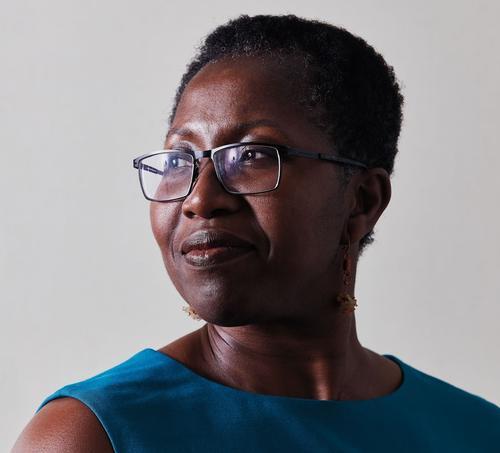An interview with Sharon Blackman OBE, Head of FX Legal at Citi and Corinna McClune, Citi's Sanctions, AML and Anti-Bribery Counsel and Senior Vice President.

Sharon Blackman OBE is Head of FX Legal at Citi, with more than 20 years’ experience.
What does your role involve?
Sharon: I manage a team of lawyers who, broadly speaking, advise the sales and trading business of Citi on FX and local market interest rate products covering issues spanning regulatory to market infrastructure, from new product delivery to litigation support. Citi is a global bank with five key businesses, Services, Markets, Banking & International, Wealth & US personal Banking. Its legal department is almost 1,800 strong and it has offices, branches, and legal vehicles in over 150 countries globally. Each of those legal vehicles and products are supported by legal teams with skills ranging from litigation and sanctions to trademarks and property.
Why did Citibank become an Authorised Education and Training Organisation (AETO)?
Sharon: What could be seen as an ‘unusual’ step over a decade ago, of becoming a registered Pupillage Training Organisation (AETO in today’s parlance), was borne out of my own experience of qualifying at the employed Bar and building a legal career of which I am proud, through my work in international banking and financial services.
This, investing in and supporting our people, tallies well with one of Citi’s leadership principles - “we succeed together” - a belief that I strongly share. To date, Corinna has been Citi’s first and only pupil. I remain surprised that the passage of time since I was an unknowing aspiring pupil barrister has not led to more institutions broadening their training offerings to include pupillage as a way to attract talent.
How does the selection process for legal training at Citi work?
Sharon: We run an annual internal selective process for legal training that encompasses qualifying as a barrister, solicitor, or legal executive. Pupillages are awarded to those who are successful in this process and can include payment for the bar finals course and all subsequent training courses and modules. These legal development programs are a natural fit for the firm wide annual development conversations and performance assessment cycle.
We have many experienced barristers and solicitors within the department, and we leverage this deep experience and expertise as far as possible to ensure periods of training are interesting, intellectually challenging, and skill accretive. The option of partnering with chambers is always a preference, and ideally each pupil would spend some time in chambers experiencing self-employed practice.Additionally, we strongly encourage pupils to take on advocacy-based pro bono cases wherever possible, to ensure they have the widest experience possible during their training.

Corinna McClune is Citi's Sanctions, AML and Anti-Bribery Counsel, Senior Vice President, and was Citi’s first and only pupil that year.
Why did you become a pupil at Citi?
Corinna: I joined Citi just after finishing my Bar Professional Training Course in 2014. I had expectations of moving into chambers shortly after, but I quickly found that I enjoyed working in a commercial organisation, undertaking quality work on complex issues. After having my first child in 2016, the benefits and the work-life balance were a heavy influence in staying in-house.
I met Sharon Blackman OBE on an internal mentorship scheme, and we discussed the idea of undertaking pupillage. I started my first six when we were working from home due to the COVID-19 pandemic; as I was already integrated in the organisation there was no lack of opportunities to be brought in close to the heart of the issues affecting the firm, and I worked closely with senior members of the department.
“An advantage of undertaking pupillage in a commercial organisation meant that I was exposed to and given a level of work that I would have had to build up for years elsewhere” - Corinna McClune, Sanctions, AML and Anti-Bribery Counsel, Senior Vice President.
What are the benefits of undertaking pupillage in-house?
Corinna: As a sanctions specialist, the Russian invasion of Ukraine meant that I had a complex stream of work in an unprecedented legal environment. The pace of the novel sanctions being introduced meant my work and advice, especially in my second six, was at the heart of decision making for the organisation here.
Being an in-house commercial pupil meant I had built up a trusted advisor status with the business, and have more of an ability to influence and advise by knowing my client inside and out. While it may be seen as a disadvantage as only having one ‘client’, the variety of products and services that Citi offers across multiple jurisdictions ensures I have a vast variety of work with different stakeholders, and I never fully fall into my comfort zone.
The advantage for Citi is that they have a pupil and then a barrister who knows the organisation, and can act nimbly when novel situations arise, something I have had plenty of occasions to demonstrate in the last two years! During my pupillage I was able to be in the room to discuss with HM Government through UK Finance, our industry body and lead industry papers to be presented to government.
Being an employed barrister is my personal preference with two young children. I welcome more variety for prospective pupils at the Bar too; it helps promote diversity as it attracts a wider group of people in different circumstances. There are many employed barristers bringing their skills to numerous organisations, be it in-house or at a law firm etc. and the pupillages on offer should reflect this.
I was surprised to find I was the only in-house commercial pupil that year and that shouldn’t be the case. Our skills are needed and can greatly add to commercial legal departments from pupillage, not solely after experienced practice elsewhere.
This blog is part of the Employed Bar Pupillage series. Read Stuart Alford KC’s blog, where he explores why the numbers of employed pupillages on offer have historically been low, and how the landscape is now changing.